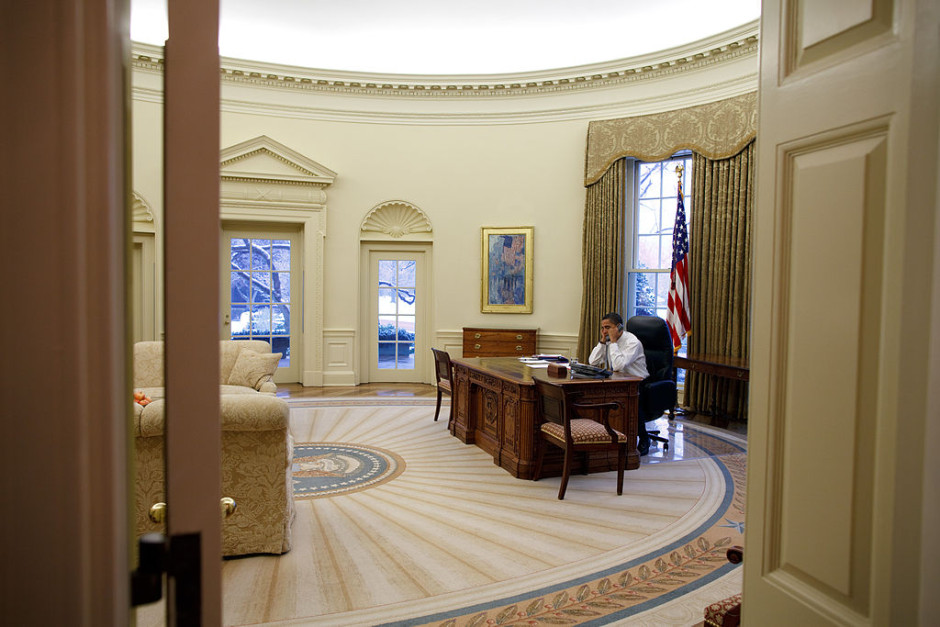Benjamin Netanyahu was on his best behaviour when he met Barack Obama on a fence-mending mission at the White House on November 9. It was an important meeting, given the United States’ status as Israel’s chief ally and benefactor.
Netanyahu, who last met Obama more than a year ago, had his work cut out for him.
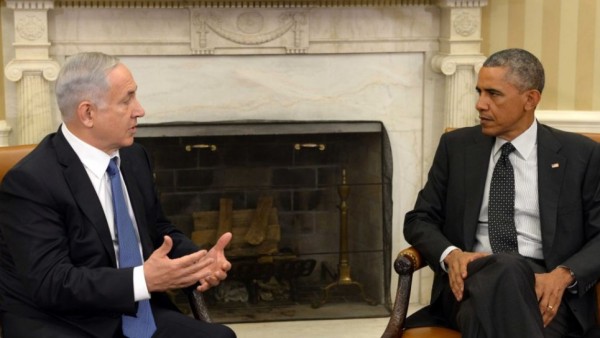
The Israeli prime minister’s personal relationship with Obama is rocky and in dire need of improvement, having been battered by two overlapping events.
Last year’s peace talks between Israel and the Palestinian Authority, sponsored by the Obama administration, collapsed in a welter of mutual acrimony after nine months of fitful negotiations to reach a two-state solution. U.S. Secretary of State John Kerry implicitly blamed Israeli intransigence for the failure. Kerry, naively perhaps, believed he could bridge the gaps in their respective positions, but learned to his dismay that their conflict may be beyond resolution.
Netanyahu also raised eyebrows in Washington by vocally opposing the nuclear agreement signed by the six major powers and Iran last July. Netanyahu claimed it was a “bad deal” that would leave Iran stronger as a regional power and pose a threat to Israel’s long-term security.
The American president hit back, arguing that the accord would curb Iran’s nuclear program for up to 15 years and thereby block its pathway to an atomic arsenal.
Unswayed by Obama’s statements, Netanyahu accepted an invitation from John Boehner, the then Republican Speaker of the House of Representatives, to make his case to a joint session of the U.S. Congress. Netanyahu annoyed the Democratic Obama administration because he did not inform the White House in advance of his decision to address Congress.
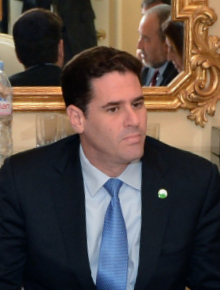
From that point onward, Netanyahu and Israel’s ambassador to the United States, Ron Dermer, continued to lobby vigorously against the terms of the emerging nuclear agreement. The Obama administration attempted to mollify Netanyahu by promising to enhance security cooperation with Israel, but he deflected Washington’s overtures.
The American ambassador to Israel, Dan Shapiro, acknowledged that the United States and Israel had “profound disagreements” over the nuclear accord, but he urged the Israeli government to begin talks on a new U.S. defence package for the coming decade. In a petulant performance, Netanyahu appeared to ignore these appeals.
Last month, however, Netanyahu decided to turn a new page, following Kerry’s comments in September that the United States remained committed to Israel’s security and would challenge Iran’s “destabilizing activities” in the Middle East.
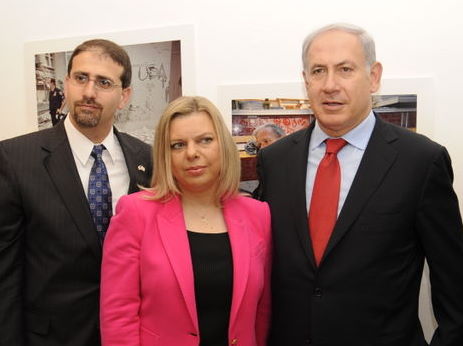
Buoyed by Kerry’s remarks, Dermer, in an upbeat Facebook post, wrote: “With the nuclear deal moving ahead, Israel is also moving ahead, hoping to forge a common policy with the United States to address the continuing dangers posed by Iran.”
Dermer disclosed that Israeli and American representatives had resumed discussions over a new 10-year Memorandum of Understanding, which spells out Israel’s military and intelligence cooperation with the United States.
As Dermer expressed optimism that Israel’s bilateral relations with Washington were finally back on track, Israel and the United States launched a two-week air force drill in the Negev Desert known as Blue Flag. Held twice a year, it is a component of Israel’s strategic relationship with the United States.
General Joseph Dunford, the chairman of the U.S. Joint Chiefs of Staff, arrived to observe the exercise and to discuss a wide range of mutually relevant issues.
Shortly afterward, Israeli Defence Minister Moshe Yaalon — a sharp critic of U.S. policy regarding Iran — told his American counterpart, Ashton Carter, that Israel is ready to move past its disagreements with the United States over Iran. “The Iran deal is a given,” he said. “Our disputes are over. And now we have to look to the future.”
He added, “The relationship between the United States and Israel is based on shared values and interests, and is clearly expressed in the strong ties between our defence establishments, armed forces and intelligence agencies … There is no truer friend of Israel than the United States of America …”
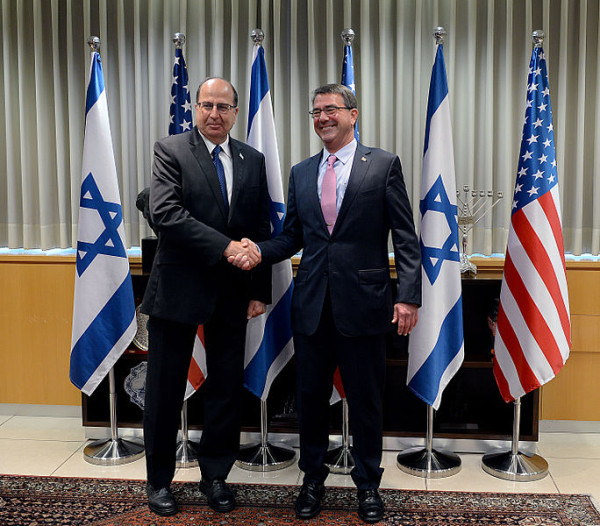
Carter, who visited Israel last summer, reiterated Washington’s “iron clad” commitment to preserve Israel’s qualitative military edge over its Arab adversaries.
According to reports, Israel is requesting a substantial increase in U.S. military assistance, from $3 billion to $5 billion annually. Israel is asking for an additional squadron of F-15s — the work horse of the Israeli Air Force — tanker aircraft, V-22 Osprey planes, advanced helicopters and state-of-the-art bunker-buster bombs.
Israel may also request more F-35 stealth fighter-jets than it has already ordered. Israel will be the only nation in the Middle East to receive the F-35.
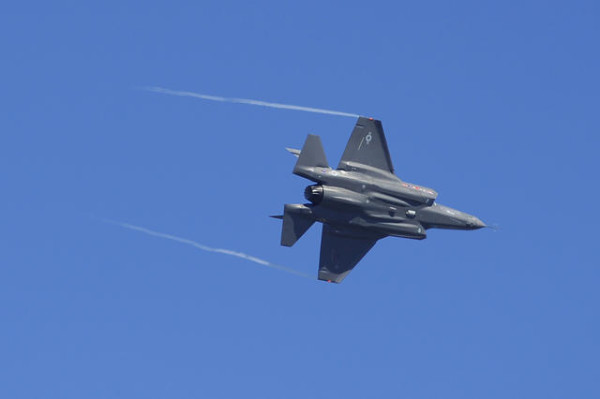
In addition, Israel seeks more funds for short-range and long-range missile defence systems and joint missile defence research.
As well, Israel wants assurances from the Obama administration of its intention to combat Islamic terrorism and Islamic State and contain Iran, whose political and military leaders still speak of destroying the Jewish state.
Obama, in August, alluded to Iran in a letter to Jerrold Nadler, a Democratic member of the House of Representatives who voted for the Iran nuclear agreement. “It is imperative that, even as we effectively cut off Iran’s pathways to a nuclear weapon, we take steps to ensure that we and our allies and our partners are more capable than ever to deal with Iran’s destabilizing activities and support for terrorism.”
Judging by his record, Obama is likely to meet Israel’s most urgent needs. Since his accession to the presidency in 2009, he has provided Israel with more than $20 billion in military aid and maintained its qualitative military superiority over its Arab neighbors.
Yet some Israeli officials do not appreciate Obama’s pro-Israel stance. Netanyahu’s newly-appointed media advisor, Ran Baratz, a settler who lives in the West Bank, claimed in a Facebook posting earlier this year that Obama’s negative reaction to Netanyahu’s speech to the U.S. Congress was essentially antisemitic. And in a dig at Kerry, Baratz denigrated his intellect.
Netanyahu has distanced himself from Baratz’s crude and ill-informed remarks, calling them inappropriate. But is it possible that Netanyahu privately concurs with his ludicrous appraisals of Obama and Kerry?
Judging by the apparent outcome of Obama’s meeting with Netanyahu on November 9, Israel and the United States are clearly trying to put the unpleasantry of recent months behind them. But the Baratz incident, among others, illustrates why Obama and Netanyahu will never enjoy a warm relationship.
